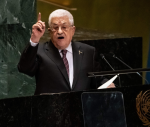You are here
Selective empathy and double standards
Oct 09,2023 - Last updated at Oct 09,2023
In a world witnessing movements resisting oppression, a stark hypocrisy emerges in the international treatment of struggles in Ukraine and Palestine. This article aims to expose the incongruities in responses to these movements, shedding light on the selective empathy and double standards prevalent in the global arena.
The Ukrainian crisis, epitomised by Russia's annexation of Crimea in 2014, conveniently captures contemporary attention, creating a narrative of valiant struggle against external aggression. However, the Palestinian narrative, deeply rooted in the Nakba of 1948, languishes in historical complexities, seemingly overlooked by a world that selectively chooses which historical injustices to champion.
Geopolitical alliances are painted with shades of bias, shaping the extent of global support for different movements. Ukraine, a strategic chess piece between Europe and Russia, enjoys unwavering support from Western nations, conveniently aligned against perceived Russian expansionism. Conversely, the Israeli-Palestinian conflict is entangled in a web of political intricacies, revealing a glaring hypocrisy in global alliances that perpetuates the prolonged Palestinian struggle.
Media portrayals, often swayed by political biases, create a glaring disparity in the coverage of these movements. The Ukrainian crisis is spotlighted for its fight for democratic ideals, while the Palestinian struggle contends with diverse and often skewed representations, exposing a hypocritical global narrative that prioritises certain narratives over others.
Critics argue that the divergent treatment of these movements is a testament to the world's selective empathy and glaring double standards. Powerful nations conveniently align themselves with causes that suit their geopolitical interests, raising serious questions about the authenticity of the global commitment to justice and self-determination. This blatant hypocrisy demands a critical examination of the principles that guide international responses to these struggles.
In conclusion, the global response to Ukrainian and Palestinian resistance movements reveals a disturbing hypocrisy woven into the fabric of international relations. Historical dynamics, geopolitical alignments, and media narratives collectively expose a double standard that challenges the very essence of justice and self-determination. As conscientious global citizens, it is imperative to confront this hypocrisy and demand a more equitable and principled approach to addressing struggles for human rights worldwide.












